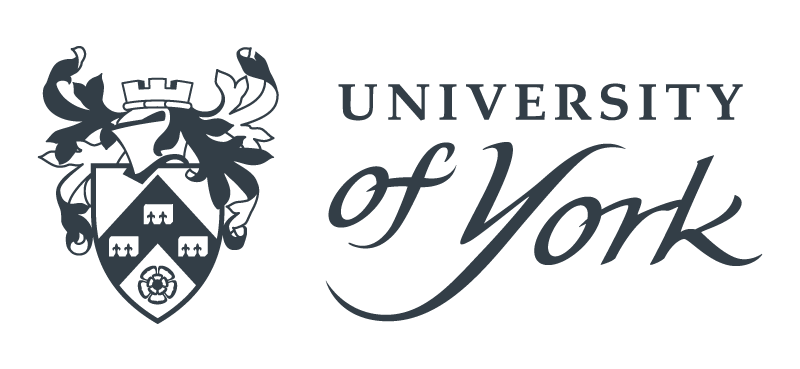Social media
1. Introduction
1. The University encourages employees to make reasonable and appropriate use of social media as part of their work. It is recognised that social media is an important part of how the University engages with its audience and facilitates communication and networking between employees and partners.
2. Social media provides numerous benefits and opportunities including exchanging ideas, participating in debate, promoting the University's success, developing national and international reach, improving student engagement and attracting outstanding staff and students.
3. However, along with these benefits come the risks of managing something that is dynamic and unlimited in scale. These include the reputational damage arising from misuse, abuse, threats to the security of sensitive or confidential information, exposure to malware and disruption to work.
4. This guidance is designed to support and encourage employees to use social media appropriately to enhance our work and to protect their wellbeing and reputation and the reputation of the University.
5. The guidance should be read alongside the University's IT Regulation 11: Use of computing facilities which provides more specific and detailed information on appropriate use of the University's IT facilities.
6. Employees may contribute to the University's social media activities in accordance with the guidance provided by Marketing at https://www.york.ac.uk/staff/external-relations/digital/social-media/
2. Definition of social media
1. Social media is a form of interactive online media that allows parties to communicate instantly with each other or to share data in a public forum. This includes online social forums, blogs, video and image-sharing websites and similar facilities.
3. General Guidance
1. Social Media should not be used in a way that breaches these guidelines, or any other University policy. If an internet posting, blog or social media comment would breach any of the University's policies in another medium; it will also breach them in an on-line forum. A breach of these guidelines may be subject to disciplinary action.
2. The principles covering the use of social media by employees in both a professional and personal capacity are the same as those that apply to any other activity.
3. Employees should use the same safeguards as they would with any other form of communication about the University in a public sphere. Always ensure that security information for personal and work related accounts remains confidential and do not disclose log-in information.
4. If you receive press or media contact regarding content you have posted online which relates to the University of York, this should be referred to Media Relations.
5. 3.5 If you receive negative attention online and would like some support, there are resources available on dealing with online harassment.
4. Guidance for staff who use social media as part of their role
1. If using social media in a professional capacity, it is important to ensure that the University's interests are considered; if in doubt, advice should be sought from your manager or a subject matter expert.
2. Staff using social media as part of their job are representing the University. You should therefore make clear that you work for the University, use your real name and be clear about your role. The lines between public and private, personal and professional can become blurred in online social networks. If you are identified as a member of the University, you need to ensure that your content and tone is consistent with your role at work.
3. Employees are also responsible for content they publish in a personal capacity, whether on a blog, social media platform or any other form of user-generated media. Be mindful that what you publish will be permanent and it's very difficult and often impossible to remove.
5. Guidance for staff who use social media and the internet in a personal capacity
1. This Guidance applies when employees use social media and the internet in a personal capacity in their own time and on their own devices.
2. Employees may also make reasonable and appropriate use of personal social media and the internet from the University's computers or mobile devices, provided that this usage does not hinder or interfere with their contractual or professional duties.
3. If using social media in a personal capacity and disclosing your association with the University, any views should be presented as personal views and not being representative views of the University.
4. Employees are free to express their views about the University as long as you ensure that:
- you make it clear you are communicating from a personal perspective
- the content is not offensive or otherwise inappropriate
- your statements are true and can be substantiated and
- you are not breaching confidentiality or other legal obligations
If an employee expresses views that are not consistent with these requirements, the University will collect evidence and take steps to remove the material quickly by asking the employee to do so. Disciplinary action may also be instigated.
5. Individuals are advised not to use social media to express their discontent about work or their work colleagues. This is not an appropriate or constructive route to resolve such dissatisfaction. If you have an issue concerning your work or work colleagues, you are encouraged to discuss this with your manager or pursue it through the University's Grievance Procedure, which facilitates informal resolution where appropriate.
6. Employees should be aware that their conduct outside of work will affect their employment if their conduct could be said to bring the University into disrepute.
6. Monitoring use of social media during work time
1. The University reserves the right to monitor employees' internet usage in accordance with the information provided by IT at https://www.york.ac.uk/it-services/security/monitoring/
7. Public Interest Disclosure ('Whistleblowing')
1. Where an employee releases information through social media that may be considered as a Public Interest Disclosure, the University's Speak Up (Whistleblowing) policy, must be initiated in the first instance before any further action is taken.
Document control
- Last reviewed: 30 November 2017
